Age 18 marks a turning point in many people’s lives. Kim Alexander was no different. A few months after her 18th birthday, she had completed her senior year and was ready for graduation. A stand-out athlete and point guard on the girls’ basketball team, she had recently earned a scholarship to attend a local college, leaning toward studying marketing but still undecided. Like many 18-year-olds, her interests were varied and included ballet and playing the guitar.

That all changed in one moment.
On May 15, 1979, Alexander was involved in a single-vehicle, run-off-of-the-road crash in Oconee County, South Carolina. It was senior day at her high school. Emergency responders transported her to nearby Oconee Memorial Hospital, then to Greenville Memorial, where doctors told her family she had sustained a spinal cord injury as a result of the crash, leaving her as a C5/6 quadriplegic.
Every moment of Alexander’s life in the four decades since that crash has been impacted by the injuries she sustained. But she does not define herself by her physical limitations. Instead, Alexander ties her identity and her strength to her faith, service to others and the passionate body of work she’s built around road safety.
She serves as the founder and chair of Clemson University’s Institute for Global Road Safety and Security and directs the first-of-its-kind Master of Transportation Safety Administration. The work of Alexander and her colleagues not only impacts the lives of those who visit their classrooms but it also makes a difference for motorists everywhere, delivering safer roads and more secure transportation systems nationwide.
The road to recovery
Hospitals and rehabilitation centers became a familiar place for Alexander after her crash, but with the determination of an athlete, her faith and the support of her family and friends, she began to navigate the world in a wheelchair and look at her future again.
Unfortunately, her crash in 1979 wasn’t the only significant auto-related incident in her life. Two years later, while she was still in rehabilitation therapy, her father, Curtis Alexander, was killed in a tragic crash.
“For a few years after my crash, I was still finding my way in life,” Alexander said. “Losing my father, focusing on my recovery and relearning physical capacities that so many take for granted had pushed college to the back of my mind.”
Her mother, Hazel Alexander, a breast cancer survivor of over 58 years and a woman of faith, wouldn’t let her give up and continued to champion Alexander to focus squarely on her education. Her words of support and encouragement still resonate with Alexander to this day because it was a turning point that challenged her to recalibrate her vision for her future.
Service was very important to Alexander. The whole family had been stationed around the world as her late father had spent his life in the United States Air Force. So, service was part of her family identity from early on.
Accompanied by her mother, Alexander began sharing her story with teenagers in South Carolina high schools and conferences. Her message focused on teaching the importance of making wise decisions, living safe lives and overcoming obstacles.
Alexander realized going into schools and giving presentations was important, with everyone focused on safety in the moment. However, she began to wonder what happened after she left as time passed. She questioned how she could follow up and make a lasting difference. This desire to do more led Alexander to Clemson University, following in the footsteps of her brother, Steve Alexander (industrial management ’79).
“Clemson brought in world-renowned faculty, so it was a perfect fit for me to reach higher and higher with my educational goals,” said Alexander. “Mobility was a challenge for sure, so being able to stay here was a godsend for me and my mother, Hazel, who worked a full-time job as a machine operator while she continued to be my biggest supporter and champion.”
Alexander earned all three of her degrees from Clemson: B.S. in marketing, M.Ed. in guidance and counseling and Ed.D. degree in curriculum development, risk perception and educational leadership. “Two of my proudest moments were having my mom accompany me on stage to receive my doctorate and being able to dedicate my dissertation to her,” said Alexander.
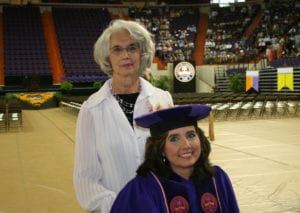
Alexander’s relationship with Clemson didn’t end with earning her degrees. In February 1990, she was hired as a program information coordinator in the Department of 4-H and Youth Development within the College of Agriculture, Forestry and Life Sciences. This six-month grant led to others and a position as an Extension associate and director in 1993.
“I wanted to do something very creative in education and something that, regardless of my physical condition, I could sit around the table with others, and we could do it together,” said Alexander.
After joining the faculty at Clemson, Alexander continued to speak to students and adults about road and traffic safety and injury prevention through school and conference presentations. She became involved with program development and delivery, writing grants, conducting sponsored research and publishing.
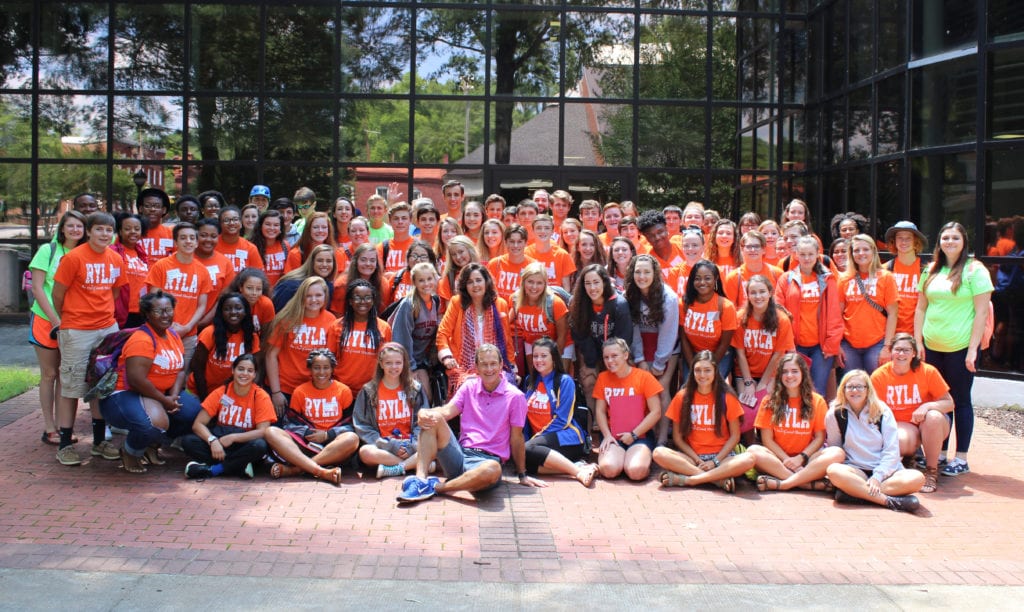
Over the course of her career, Alexander’s work has expanded to reach teenagers, agencies and organizations all over the state of South Carolina and across the United States and internationally.
“Having been the beneficiary of a quality, life-changing education at Clemson, this University became a part of my heart. Clemson was forever a part of me,” said Alexander. “Pursuing and achieving my goal of joining the faculty at Clemson allowed me to use my education and life experiences to help shape future generations of leaders. It allowed me to combine my passions for education, student mentorship and motivation with my lifelong commitment to lead by example and devote my career to saving lives.”
As Alexander continued to establish her unique role at Clemson, she brought Philip Pidgeon on board as a program coordinator in 1997. Together they worked on grant-funded projects and research initiatives, establishing a working partnership that has surpassed 24 years. Alexander and Pidgeon’s work focused on investigating the attitudinal, behavioral, cognitive, social and cultural aspects of road traffic injury prevention in order to develop effective interventions to enhance the safety of the human-vehicle-road environment.
“It has been an honor to go on this journey and work side by side all these years with such a true scholar as Dr. Pidgeon,” said Alexander.
In 2003, Alexander’s educational aspirations and life experiences began to merge as she founded the Center for Safety Research and Education (CSRE) in the former College of Health, Education and Human Development, serving as both a lecturer and director of the Center. While a center is associated with a particular college, an institute involves all colleges. CSRE led to the establishment of the Automotive Safety Research Institute in 2005, which was primarily affiliated with the then College of Engineering and Science. Here, Alexander continued to serve as a lecturer as well as the executive director. Then in 2013, the Institute became the Institute for Global Road Safety and Security (IGRSS). Alexander was not only the founder but also became the department chair while still teaching students.
IGRSS examines the safety of the automotive and transportation environment in order to generate new information to make more effective improvements and prepare for future challenges. This unique cross-curricular structure addresses complex and interconnected challenges that a single discipline or profession cannot solve.
At this time, Ralph Elliott, vice provost for Off-Campus, Distance and Continuing Education and professor emeritus of economics, volunteered to help establish and chair the IGRSS Advancement Board to promote and generate philanthropic support for the work of the Institute.
The College of Engineering and Science underwent a transformation of its own in 2016, becoming the College of Engineering, Computing and Applied Sciences. Up until 2017, the IGRSS was focused mainly on research. The addition of Bruce Rafert in 2017 brought knowledge in the development of undergraduate and graduate programs that combine teaching, learning and research across all disciplines. He is an emeritus professor and former vice provost and dean of the Graduate School at Clemson University. With more than 25 years of experience in academic and project administration as an institute director, department chair, dean and vice provost, he would be exceptional as a graduate program coordinator.
Having worked with Terecia Wilson on multiple projects and initiatives for more than two decades during her tenures at both the South Carolina Department of Public Safety as coordinator for the State Highway Safety Office and later with the South Carolina Department of Transportation as director of safety, Alexander recruited her to the team as a professor of practice in 2018. Wilson had played a key role in numerous national and international road safety programs throughout her career, advocating the need for colleges and universities to establish degree-granting programs in road safety.
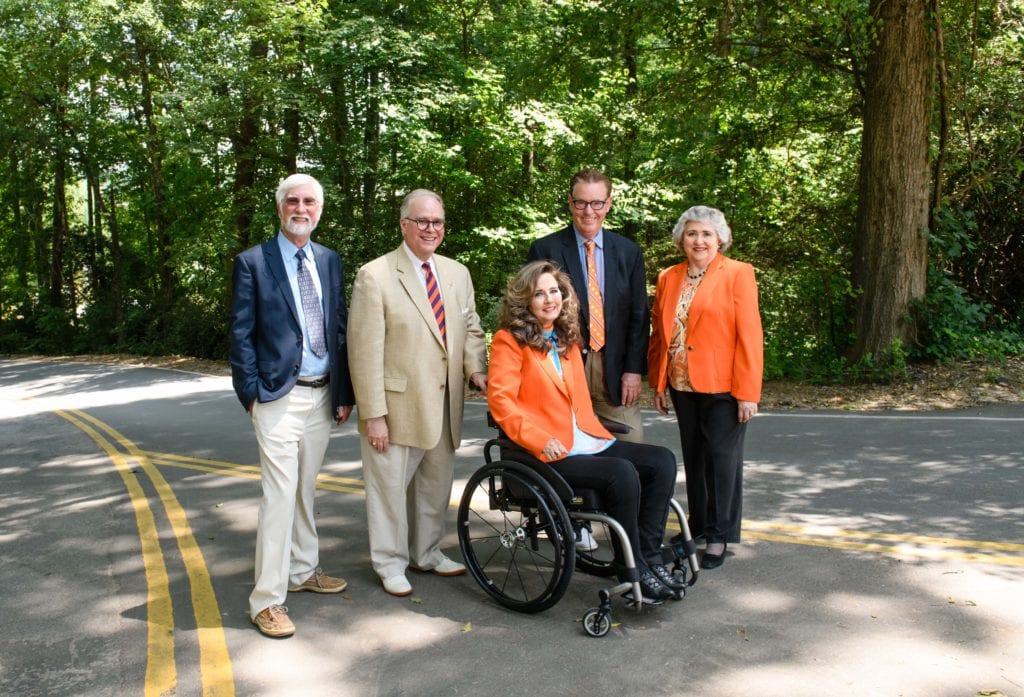
The difference Alexander wanted to make became clearer. Her collaborators came to the table she envisioned years ago. Their focus moved from research to academics, and together they started building the foundation of the Master of Transportation Safety Administration (MTSA) degree program, an all-online program designed for working professionals.
First of its kind
More than 40 years after her crash, Alexander is impacting not only the lives of others in the classroom but also drivers, passengers and pedestrians on the road. Today, as clinical associate professor, founder and chair of Clemson University’s IGRSS, Alexander has resumed her point-guard role as director of the first-of-its-kind MTSA degree program, which launched in 2019. However, she’s quick to mention this program is the result of many collaborators, research areas and partnerships — truly a team effort and a blessing to have the opportunity to work with such wonderful individuals and scholars.
“My mother, Hazel, my biggest champion and supporter throughout my life, passed away in 2016 and wasn’t able to see the MTSA program become a reality,” said Alexander. “I know she would be proud of what we have accomplished together.
Now both IGRSS and MTSA are affiliated with Clemson University’s Graduate School.
“We had been doing the research for a long time,” said Pidgeon, associate chair and clinical associate professor at IGRSS. “We knew it was time to anchor ourselves in the academic programs of Clemson University.”
Developed in coordination with a technical advisory committee of prominent national leaders with tremendous expertise in the field of road safety, and offered exclusively online, MTSA is a two-year, 30-credit hour, non-thesis interdisciplinary program that addresses the need for a road safety workforce capable of deploying evidence-based strategies and best practices supported by ongoing research. With the rise of autonomous vehicles and connected infrastructure, the world of road safety is even more crucial.
With 35 years of traffic safety experience, Terecia Wilson, professor of practice and two-time winner of the National Highway Traffic Safety Administration’s National Award for Public Service, has witnessed road safety emerging as a distinct scientific discipline along with the need to prepare professionals for evidence-based road safety management.
Data shows that motor vehicle crashes in the United States and developing nations remain the leading cause of unintentional injuries and deaths. Motor vehicle crashes are continuing to create a public health crisis worldwide, so there is a tremendous need to build capacity and create a road safety workforce that is competent and capable of using the many new tools and technologies, with multidisciplinary approaches, to improve safety.
TERECIA WILSON, PROFESSOR OF PRACTICE
Through the MTSA program, the University endeavors to create leaders equipped with the knowledge and skills to fill critical roles in the development and management of innovative road safety programs from the United States to Africa and other parts of the world. The goal is to build safer communities, which will reduce vehicle crashes and ultimately save lives.
“The significance of the MTSA program cannot be understated,” said Elizabeth Baker, regional administrator emeritus of the National Highway Traffic Safety Administration. “Professional development in transportation safety has long been an issue, and this program is unique in addressing that need.”
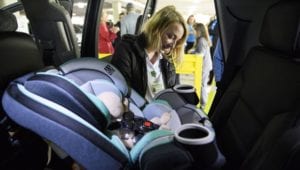
This MTSA program examines and calculates the complex transportation safety issues society will face in the next 10-20 years from a variety of perspectives: behavioral safety programs, infrastructure programs, injury prevention, emergency management, driver and vehicle services, commercial motor vehicle safety and private industry.
“There is a general consensus in the highway safety community that safety professionals need to be more aware of the different disciplines that work to improve highway safety and the need for those disciplines to work closely together to coordinate safety programs, interventions and assess benefits,” said Michael Trentecoste, associate administrator emeritus with the Federal Highway Administration.
With specific expertise in a variety of disciplines and professional backgrounds, MTSA students include members of law enforcement, emergency management, education, planning and design, public health, injury prevention, communications, marketing, public policy, driver and vehicle services, transportation finance and grants administration.
“It’s absolutely imperative that our road safety workforce has a wide range of knowledge in all the ‘E’s’ of safety — engineering, enforcement, education and emergency services — and that they understand the diversity in the field and how the various disciplines must work in a coordinated approach to improve road safety,” said Wilson.
Through this program, the University continues to serve state highway safety offices, the private sector, advocacy groups, safety-related nonprofits and professional associations along with government agencies focused on road safety at local, state, regional, federal and international levels.
The first cohort of MTSA students graduate in August 2021, and the MTSA team noted how proud they are of the students and how excited they are to see what they will accomplish in the future.
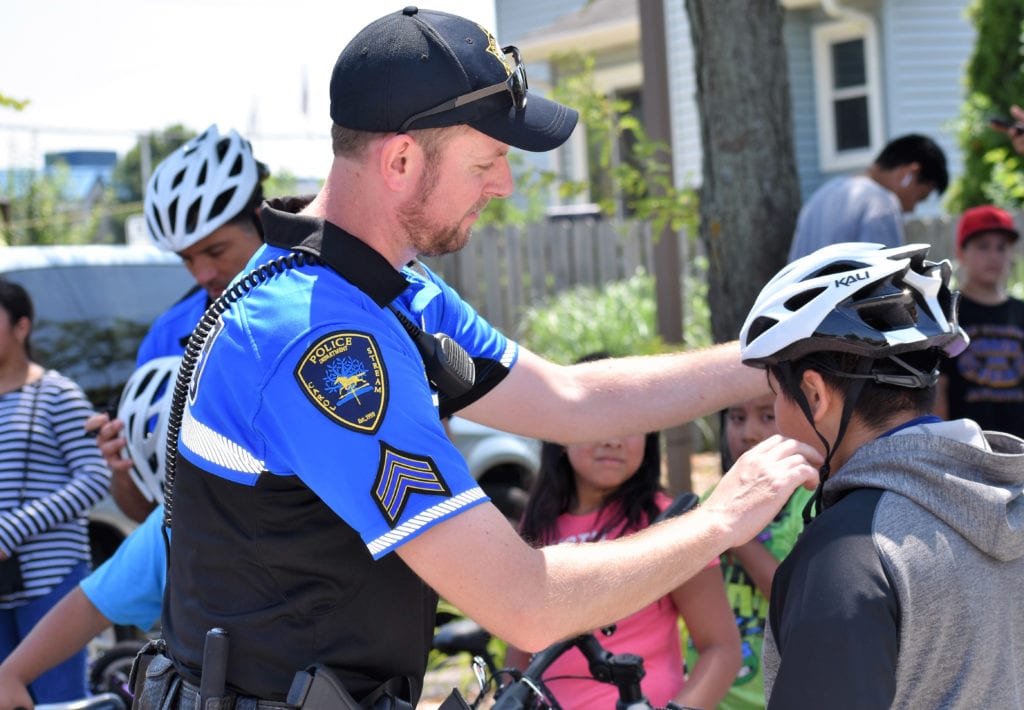
“At the very least, what this program has done for me is it has given me the tools and made me more knowledgeable, and, at the most, it saves lives,” said MTSA student Brian Cluever, a commander with the Carol Stream Police Department in Illinois. “And it will continue to do so because I actually take what I’ve learned and now make my officers read the same readings we do in class.”
The road ahead necessitates the ability of the road safety professional both to use the content and solve problems by working effectively with and accessing the combined knowledge of diverse teams of transportation professionals. Teamwork, collaboration, communication and critical thinking are necessary elements for success in road safety management and administration.
“I’m a licensed civil engineer, and everything I learned about transportation safety I learned on the job as it wasn’t covered in undergraduate courses,” said Katherine Beckett Suter. “I was just about to give up on trying to continue my transportation safety education when I learned of the MTSA program. So far, every course has directly related to my career, and I can see myself using it in the future.”
Silo disciplines are no longer capable of meeting the challenges of road safety management and administration alone. The practice of road safety management and administration has increasingly become both interdisciplinary and team oriented.
“The impact of the MTSA curriculum on the development and education of students from myriad professions is truly impressive,” said John Lopes, associate provost and dean, Clemson University Graduate School. “As a relatively new member of the Clemson community, it has been a highlight to witness Dr. Alexander’s commitment, passion and expertise to creating a safer world. The excellence of the MTSA curriculum is a direct reflection of Dr. Alexander’s equally dedicated colleagues.”
Brett Hughes, an independent transport researcher and advocate based in Australia, commented that safety culture is an important part of safety-critical industries, including aviation and rail, but is almost totally absent from safety management on roads.
Whether you’re a driver, a passenger, a cyclist or a pedestrian, or receiving goods and services, road safety affects everybody every day to some degree, which makes a program like MTSA critically needed.
PHILIP PIDGEON, ASSOCIATE CHAIR AND CLINICAL ASSOCIATE PROFESSOR AT IGRSS
Building tomorrow’s road
The MTSA degree program fills a need in the industry and rounds out Clemson’s full-circle approach to mobility.
From automotive engineering and manufacturing to cloud infrastructure and safety administration, Clemson is making significant contributions to the future of transportation in both research and educating talented students who benefit from working with world-renowned organizations such as Google, Amazon and those affiliated with the Clemson University International Center for Automotive Research.
Clemson’s Nieri Family Department of Construction Science and Management has even explored using drones for bridge inspections and land surveying.
From the vehicle to the road to the sky, Clemson University is building a safer tomorrow through interdisciplinary studies and a united collection of intellectual power dedicated to saving lives, whether it’s a pedestrian at a crosswalk, a vehicle passenger or a driver.
Until the transformation to autonomous vehicles and fully connected infrastructure is complete, Clemson will continue to research and develop the technology and best practices behind it, with an eye on emerging technologies, so people can focus on arriving at their destination by a certain time, the errands they need to run or whom they might need to pick up or drop off at another location.
“Sitting in this wheelchair has given me a different vision than I probably would have had if I had been on my feet,” said Alexander. “It’s given me a clear perspective that life is fragile and that bringing together people who have the same passion and commitment to saving lives can create something that will leave a lasting impact. I truly believe this program will result in a much safer world.”
Get in touch and we will connect you with the author or another expert.
Or email us at news@clemson.edu

